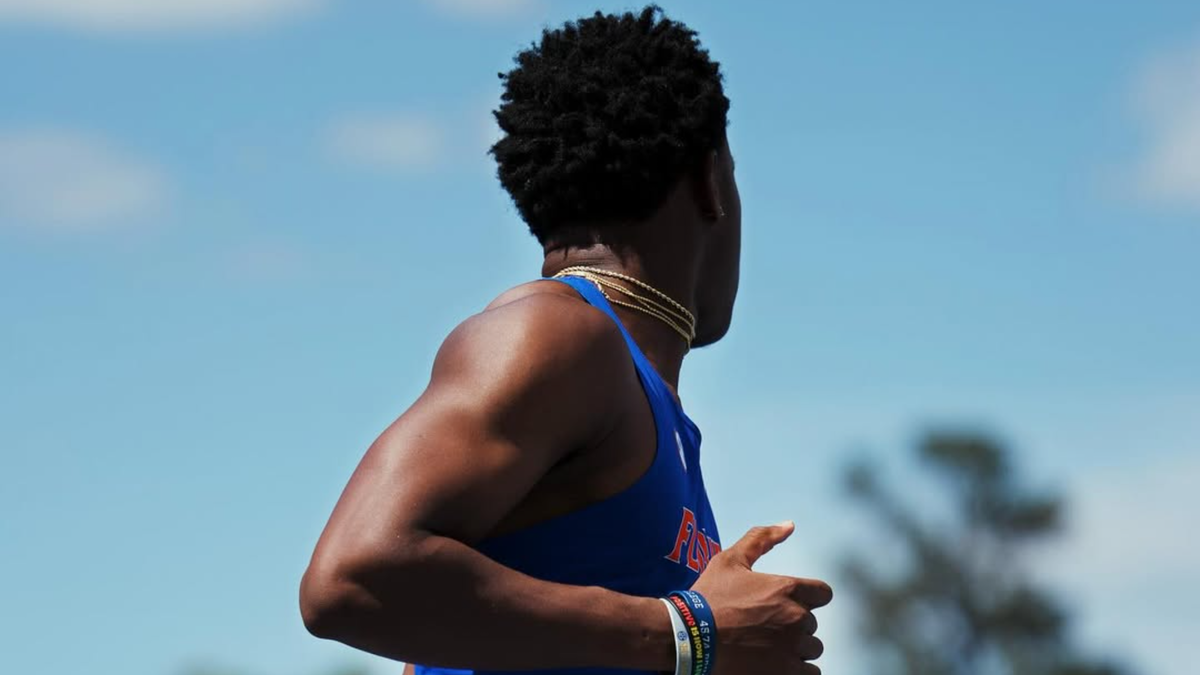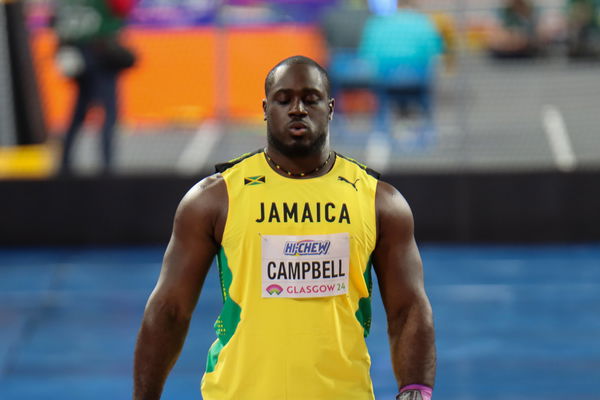
Imago
Credit: Instagram/ Malique Smith-Band

Imago
Credit: Instagram/ Malique Smith-Band
Just three weeks ago, the track and field world was left stunned. Jamaican shot putter and Olympic bronze medalist Rajindra Campbell made headlines by switching his allegiance to Turkey. Reports soon followed that discus world champion Roje Stona was doing the same. According to those reports, both athletes were offered a $500,000 signing bonus along with monthly financial support to make the move. But the shock didn’t stop there. Another major hit came with Wayne Pinnock — the long jump silver medalist from Budapest, Paris, and Nanjing — also opting to switch. In a matter of days, Jamaica saw half of its medal haul from last year slip away. And the wave of exits still wasn’t over.
Watch What’s Trending Now!
Just days later, Nigerian sprint sensation Favour Ofili joined the group of Jamaican athletes making the move to Anatolia. While the Athletics Federation of Nigeria (AFN) showed little resistance to the switch, the response from Jamaica’s governing body was far more assertive. The Jamaica Athletics Administrative Association (JAAA), under the leadership of Garth Gayle, firmly stated that no official transfer requests had been submitted. Yet, the situation continued to evolve — another development has now emerged.
ADVERTISEMENT
On June 11, acclaimed Jamaican track and field journalist Kayon Raynor broke the story on X. According to the report, Malique Smith-Band, a former Jamaican junior athlete, has officially switched his allegiance to Great Britain, the country of his birth. The 21-year-old, born in London before relocating to Jamaica, currently competes for the Florida Gators in NCAA track and field. He is set to begin representing Great Britain on April 20, 2026. This time, the Jamaican federation has confirmed the development. But the big question now is: what does Smith-Band bring to the table?
Former J’can🇯🇲 jnr representative Malique Smith-Band, who won the U-20 200m gold at the Carifta Track & Field Champs in 2023, has completed his switch of allegiance to the country of his birth, Great Britain 🇬🇧 @TvjNewscentre He can start representing Britain from April 10 2026. pic.twitter.com/l9Grw3XM9o
— Kayon Raynor (@kayraynor) July 12, 2025
ADVERTISEMENT
This season, Malique Smith-Band took part in the Tom Jones Invitational (April 18–19), where he ran the 400m in 46.24 seconds, helped his team finish seventh in the 4x400m relay (3:04.29), and secured ninth place in the 4x100m relay (39.12). Earlier, at the Florida Relays (April 4–5), he clocked 46.89 in the 400m, contributed to a third-place finish in the 4x100m (39.17), and helped the 4x400m team finish fifth (3:05.33). His standout performances with the Gators’ 4x100m relay squad last season also earned him a spot on the USTFCCCA Outdoor First Team All-American list. On the national stage, he has also delivered several noteworthy performances.
Two years ago, Malique Smith-Band claimed the under-20 200m gold at the Carifta Track and Field Championships. But starting next year, he’ll compete under the Great Britain banner in international meets. With the Los Angeles Olympics on the horizon, this switch could prove significant. Still, the growing trend of athletes changing national allegiance has raised concerns—something Rajindra Campbell has recently addressed with a few thoughts of his own.
ADVERTISEMENT
The track and field athlete shows the real picture
While the debate around nationality switches continues to stir the track and field world, American coach Rob weighed in with a practical perspective on his podcast. He highlighted a key issue: “You’ve got athletes who are fast who don’t have a pro sponsorship with, like a shoe deal that, you know, pays them out directly. And I guess some people discredit them as not pros just for that one fact,” he said. In his eyes, Turkey’s recent financial incentives offer struggling athletes a legitimate lifeline to stay in the sport and earn a living. But not everyone sees it that way.
ADVERTISEMENT
Rajindra Campbell, who recently made headlines for his own switch, pushed back strongly against some of the assumptions floating around. Speaking to Coach’s Desk TV on June 23, Campbell addressed what he called a wave of “misinformation.” “There’s a lot of misinformation out there. A lot of it,” he said. Responding to a suggestion that countries should impose transfer fees on athletes, he didn’t hold back: “ I disagree with it because at the end of the day, the money doesn’t go back to the athletes.” Campbell then revealed a deeper, more personal layer to his story.

Imago
Emirates Arena, Glasgow, Scotland – Friday 1st March: Rajindra CAMPBELL Jamaica JAM competes in Shot Put Final during the World Athletics Indoor Championships Glasgow 2024 at Emirates Arena on Friday 1st March 2024 Claire Jeffrey / SPP PUBLICATIONxNOTxINxBRAxMEX Copyright: xClairexJeffreyx/xSPPx spp-en-ClJeSp-CJ-SPP-WIAC-Session1017
“They fail to understand that in 2023, I had an offer to leave,” Campbell said. “I decided I was a Patriot.” Then came the punch: “Later turned around and bit me big time.” He explained that despite making efforts—calling, emailing—he got no support. “I tried,” he said. “It’s like, it’s not a situation where I didn’t try. I tried.” So while the headlines focus on who’s switching flags, the real story might be the complicated decisions, missed chances, and quiet struggles behind them.
ADVERTISEMENT
ADVERTISEMENT
ADVERTISEMENT
ADVERTISEMENT